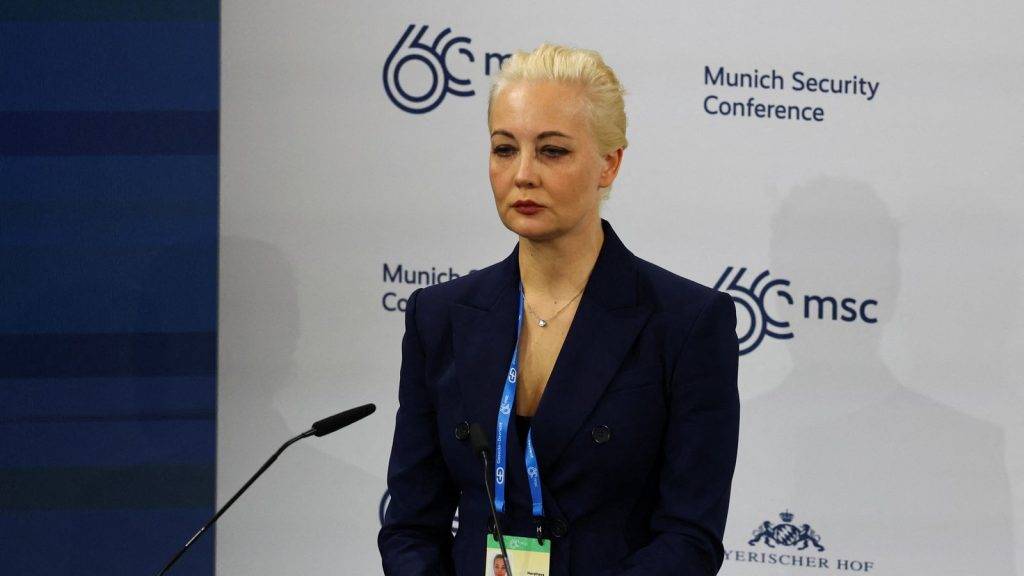Today’s news summary – Paper Talk: ‘Alexei Navalny wife blames Putin’
Many of Tuesday’s newspaper front pages focus on international stories, such as the death of Putin critic Alexei Navalny in Russia and the Israel-Gaza war. An image of Yulia Navalnaya, Alexei’s widow, is featured on many of the front pages.
The latest from the Middle East is also featured on the front pages, as the US is preparing to call for a ceasefire.
The Guardian leads on the message by Yulia Navalnaya, the widow of Alexei Navalny, in a video address on Monday, characterising it as a “defiant call” to the Russian people. Navalnaya’s emotional voice quivered as she pledged to continue her late husband’s political work and implored Russians to unite behind her cause.
Meanwhile, The Times reports that Navalnaya directly accused President Putin of orchestrating Navalny’s death, alleging that authorities are intentionally concealing his body to allow traces of the nerve agent novichok to dissipate.
Contrary to speculations suggesting that Navalny’s death could isolate President Putin internationally, The Financial Times rebuffs such notions, noting that admirers of the Russian president could potentially ascend to leadership positions in major democracies like India, the US, and Indonesia this year.
‘Concerns over Rafah offensive’
On a separate note, The Telegraph highlights US concerns regarding Israel’s planned offensive in Rafah, with President Biden advocating for a United Nations vote on a temporary ceasefire to quell the violence in Gaza.
Closer to home, The Mirror reports that the Prince of Wales intends to raise awareness about the humanitarian toll of the conflict by meeting aid workers and visiting a synagogue. The Express underscores Prince William’s commitment to his pledge of making peace in the Middle East a lifelong pursuit, drawing parallels between his aspirations and those of his parents, showcasing substantial ambition in his choice of engagements.
The Sun criticises the government’s recent announcement to ban mobile phones in schools across England, dismissing Monday’s declaration as a “phoney war”. The paper suggests that the plans would carry more weight if ministers were to enforce strict regulations rather than merely issuing guidance that can easily be disregarded. According to the paper, the whole initiative seems like a diversion tactic to deflect attention from other governmental shortcomings.
In contrast, The Times takes a more sympathetic stance, contending that a ban on phones in schools represents a necessary and overdue measure. However, it cautions that the new guidelines fail to address the more serious issue of regulating children’s usage of social media platforms itself.


